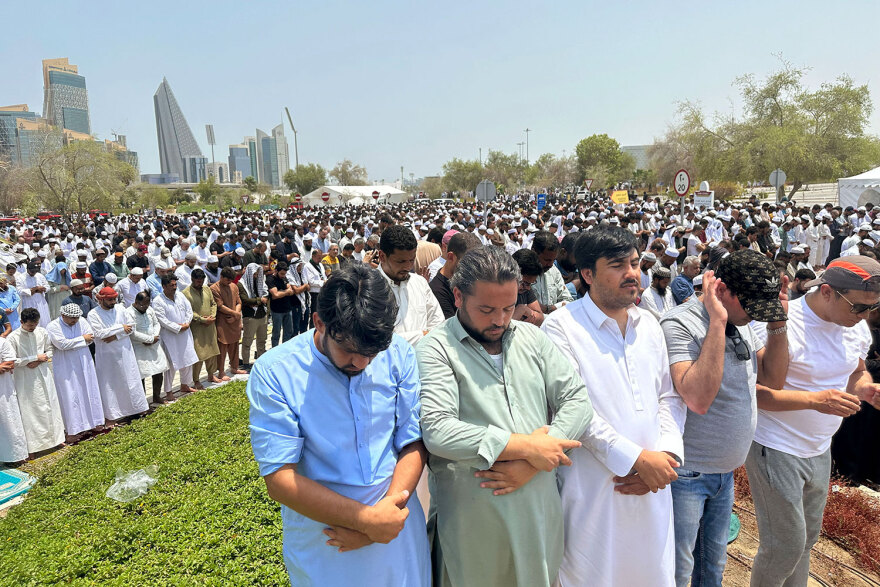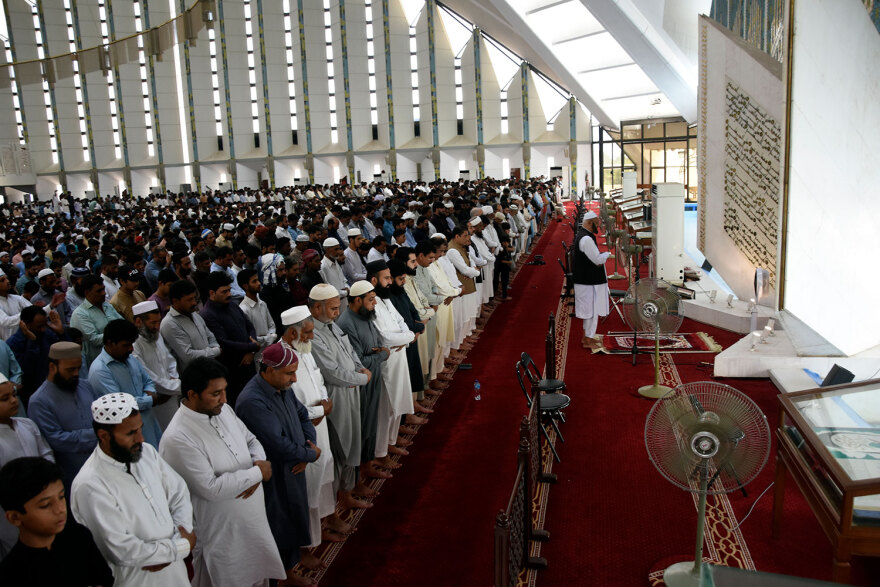The funeral of Hamas leader Ismail Haniyeh was held in Qatar, while memorial services took place in Turkey, Lebanon, Yemen, Pakistan, Malaysia, and Indonesia.
On Friday, as the West braces for potential destabilizing actions in the Middle East, thousands gathered in Doha for prayers before the burial of the head of the Islamist organization, Hamas.
The wife of Hamas's political chief Ismail Haniyeh, who was killed earlier this week in Tehran, mourns next to his coffin in Doha pic.twitter.com/p4o3ymDGAw
— The National (@TheNationalNews) August 2, 2024
Representatives of Palestinian factions also attended the funeral in Doha, where Haniyeh lived along with other Hamas members. His family was under strict security during the ceremony.
Turkey and Pakistan have declared a national day of mourning.

Among those who attended the ceremony at a large mosque north of Doha’s capital were Khaled Meshaal, who might be the new leader of Hamas, other high-ranking Hamas officials, and the Emir of Qatar, Sheikh Tamim bin Hamad Al Thani.
Senior Hamas official Sami Abu Zuhri said by phone to Reuters from the funeral: “Our message to the occupying force (Israel) today is that you are sinking deeper into the mud and your end is closer than ever. Haniyeh’s blood will change all equations.”
Ismail Haniyeh's final journey: from Tehran to Doha for burial https://t.co/dZ7Qp2xar8
— africanews (@africanews) August 2, 2024
Haniyeh was killed on Wednesday in an “airstrike,” according to Hamas and Iranian media, in a building for war veterans in northern Tehran, just hours after attending the inauguration ceremony of Iran’s new president, Massoud Pezeshkian.
Iran and Hamas accuse Israel of the assassination and have vowed to retaliate.
Israel has neither claimed responsibility nor denied it.

A New York Times report, citing five Middle Eastern officials who spoke on condition of anonymity, stated that Ismail Haniyeh was killed when a bomb, hidden for nearly two months, was detonated in the residence where he was staying, despite the building being theoretically under strict guard by the Revolutionary Guards as part of their vast complex in a wealthy neighborhood in northern Tehran.
Haniyeh was the face of Hamas’s international diplomacy as the war raged in Gaza and had participated in indirect ceasefire talks. He was considered by many diplomats to be moderate compared to the more hardline members of the Iranian-backed organization within Gaza, though some Israeli commentators say he was viewed by some on the Israeli side as an obstacle to a deal.
Ask me anything
Explore related questions





